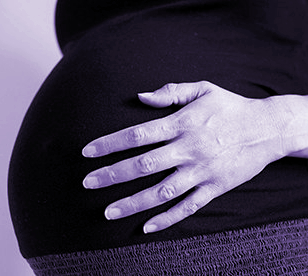Pregnancy issues continue
 Experts say pregnancy discrimination is still widespread in Australian workplace culture.
Experts say pregnancy discrimination is still widespread in Australian workplace culture.
Official reports of workplace pregnancy discrimination are low, but the Australian Human Rights Commission says that those numbers do not reflect reality.
One in two mothers have reported experiencing discrimination during pregnancy, parental leave or when returning to work.
This includes women finding themselves unemployed, demoted, restructured out of a job, or the victim of adverse action before, during or shortly after a period of unpaid parental leave.
It can also be difficult to access basic rights under the National Employment Standards such as the right to be transferred to an appropriate safe job during pregnancy or - if no such job exists - the right to be paid no safe job leave.
Blue-collar employers have used surveillance to monitor their pregnant employees.
‘Medical surveillance’ is a term to describe employers gaining access to employee medical records and histories for coercive purposes.
Blue-collar members of the United Workers Union (UWU) have described how their employers have requested Certificates of Capacity to show they are able to return to work.
An UWU report explained the harms of this practice:
“[The worker’s] GP, unaware of the employment dynamic, will often request ‘light duties’ for their patient, believing they are being helpful.”
“However, the employer will then interpret such a request as proof the woman is unable to return to her pre-leave position and use this medical certificate to undermine her legal right to return to the same position held before taking leave.”
Experts and advocates say workers should contact their union reps, HR department and even the Fair Work Commission to make their workplace more inclusive and supportive, especially for pregnant women.







 Print
Print